
The Anthropocene is a now rejected proposal for the name of a geological epoch that would follow the Holocene, dating from the commencement of significant human impact on Earth up to the present day. It was rejected in 2024 by the International Commission on Stratigraphy in terms of being a defined geologic period. The impacts of humans affect Earth's oceans, geology, geomorphology, landscape, limnology, hydrology, ecosystems and climate. The effects of human activities on Earth can be seen for example in biodiversity loss and climate change. Various start dates for the Anthropocene have been proposed, ranging from the beginning of the Neolithic Revolution, to as recently as the 1960s. The biologist Eugene F. Stoermer is credited with first coining and using the term anthropocene informally in the 1980s; Paul J. Crutzen re-invented and popularized the term. However, in 2024 the International Commission on Stratigraphy (ICS) and the International Union of Geological Sciences (IUGS) rejected the Anthropocene Epoch proposal for inclusion in the Geologic Time Scale.
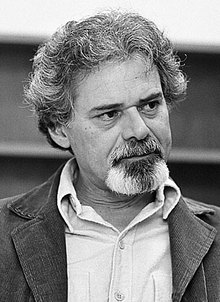
Gilbert Sorrentino was an American novelist, short story writer, poet, literary critic, professor, and editor.

George Saunders is an American writer of short stories, essays, novellas, children's books, and novels. His writing has appeared in The New Yorker, Harper's, McSweeney's, and GQ. He also contributed a weekly column, "American Psyche", to The Guardian's weekend magazine between 2006 and 2008.
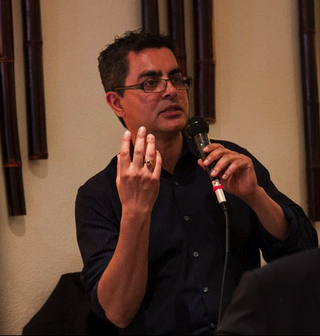
Amitava Kumar is an Indian writer and journalist who is Professor of English, holding the Helen D. Lockwood Chair at Vassar College.
Chet Raymo is a noted writer, educator and naturalist. He is Professor Emeritus of Physics at Stonehill College, in Easton, Massachusetts. His weekly newspaper column "Science Musings" appeared in the Boston Globe for twenty years. This is now a daily blog by him. Raymo espouses his religious naturalism in When God is Gone Everything is Holy – The Making of a Religious Naturalist and frequently in his blog. As Raymo says: "I attend to this infinitely mysterious world with reverence, awe, thanksgiving, praise. All religious qualities." Raymo has been a contributor to The Notre Dame Magazine and Scientific American.
Lynn Freed is a writer known for her work as a novelist, essayist, and writer of short stories.

Jay Parini is an American writer and academic. He is known for novels, poetry, biography, screenplays and criticism. He has published novels about Leo Tolstoy, Walter Benjamin, Paul the Apostle, Herman Melville, and a novelized memoir about his road trip with Jorge Luis Borges.

Naomi Oreskes is an American historian of science. She became Professor of the History of Science and Affiliated Professor of Earth and Planetary Sciences at Harvard University in 2013, after 15 years as Professor of History and Science Studies at the University of California, San Diego.
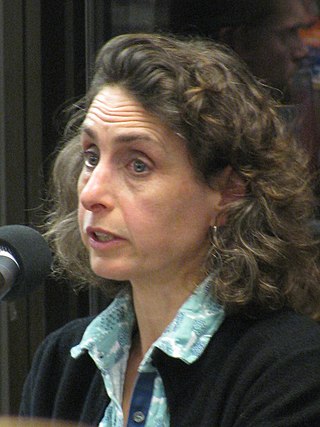
Elizabeth Kolbert is an American journalist, author, and visiting fellow at Williams College.
Peter Orner is an American writer. He is the author of two novels, two story collections and a book of essays. Orner holds the Professorship of English and Creative Writing at Dartmouth College and was formerly a professor of creative writing at San Francisco State University. He spent 2016 and 2017 on a Fulbright grant in Namibia teaching at the University of Namibia.

References to climate change in popular culture have existed since the late 20th century and increased in the 21st century. Climate change, its impacts, and related human-environment interactions have been featured in nonfiction books and documentaries, but also literature, film, music, television shows and video games.
John B. Logan was an American poet and teacher.

Tony D'Souza is an American novelist, journalist, essayist, reviewer, travel, and short story writer. He has published three novels with the publisher Houghton Mifflin Harcourt including: Whiteman (2006), The Konkans (2008), and Mule (2011).

Andrew C. Revkin is an American science and environmental journalist, webcaster, author and educator. He has written on a wide range of subjects including destruction of the Amazon rainforest, the 2004 Asian tsunami, sustainable development, climate change, and the changing environment around the North Pole. From 2019 to 2023 he directed the Initiative on Communication and Sustainability at The Earth Institute of Columbia University. While at Columbia, he launched a video webcast, Sustain What, that seeks solutions to tangled environmental and societal challenges through dialogue. In 2023, the webcast integrated with his Substack dispatch of the same name.

John D'Agata is an American essayist. He is the author or editor of six books of nonfiction, including The Next American Essay (2003), The Lost Origins of the Essay (2009) and The Making of the American Essay—all part of the trilogy of essay anthologies called "A New History of the Essay". He also wrote The Lifespan of a Fact, "Halls of Fame", and "About a Mountain".
Climate fiction is literature that deals with climate change. Generally speculative in nature but inspired by climate science, works of climate fiction may take place in the world as we know it, in the near future, or in fictional worlds experiencing climate change. The genre frequently includes science fiction and dystopian or utopian themes, imagining the potential futures based on how humanity responds to the impacts of climate change. Climate fiction typically involves anthropogenic climate change and other environmental issues as opposed to weather and disaster more generally. Technologies such as climate engineering or climate adaptation practices often feature prominently in works exploring their impacts on society.

Andreas Malm is a Swedish author and an associate professor of human ecology at Lund University. He is on the editorial board of the academic journal Historical Materialism, and has been described as a Marxist. Naomi Klein, who quoted Malm in her book This Changes Everything, has called him "one of the most original thinkers on the subject" of climate change.
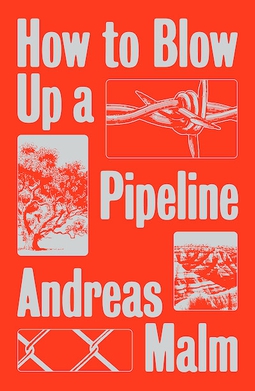
How to Blow Up a Pipeline: Learning to Fight in a World on Fire is a nonfiction book written by Andreas Malm and published in 2021 by Verso Books. In the book, Malm argues that sabotage is a logical form of climate activism, and criticizes both pacifism within the climate movement and "climate fatalism" outside it. The book inspired a film of the same name.
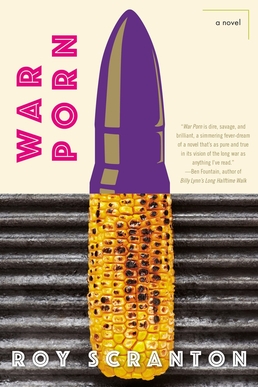
War Porn is an anti-war novel by Roy Scranton completed in 2011 and published in 2016 by Soho Press.
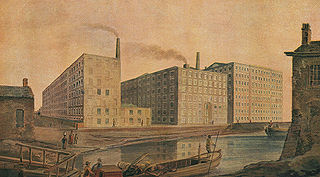
The Capitalocene is a critique of "man versus nature" thinking in climate politics. Frequently misunderstood as an alternative geological periodization to the Anthropocene proposal, the Capitalocene's leading proponents argue for the centrality of capitalism in the making of climate crisis. The Capitalocene is a way to understand capitalism as a geohistorical process, not a geological event as conventionally understood. For Andreas Malm, this is the theory of fossil capital. For Jason W. Moore, it is the theory of Cheap Nature in the capitalist world-ecology. Both argue, with Karl Marx, that capitalism is a labor process, and a class struggle, in the web of life. While Malm sees the origins of climate crisis with the ascendancy of fossil capital after 1830, Moore locates the dawn of "capitalogenic" crisis in the long seventeenth century. Both agree with Marx that capitalism is defined by the imperative of endless capital accumulation, which implies increasingly serious metabolic antagonisms.















